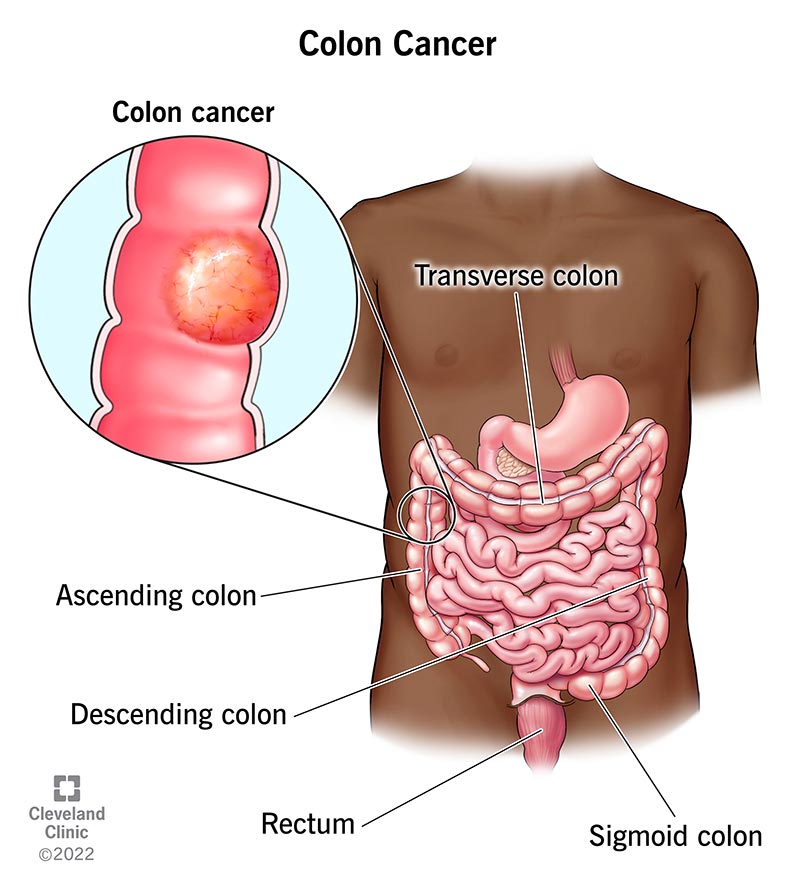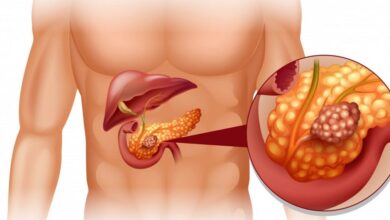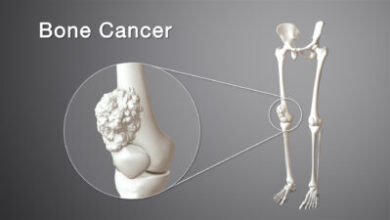Understanding Colorectal Cancer: Symptoms, Causes, Treatment, and Prevention

Colorectal cancer, often referred to as colon cancer, is one of the most prevalent cancers globally. Despite its seriousness, early detection and awareness can dramatically improve outcomes. This article explores every aspect of colorectal cancer, from its symptoms and risk factors to treatment options and preventive measures, to provide a comprehensive guide on this important topic.
What is Colorectal Cancer?
Colorectal cancer develops in the colon or rectum, two critical parts of the digestive system. It usually begins as small, benign growths called polyps, which can develop into cancer over time.
The Difference Between Colon and Rectal Cancer
Although closely related, colon cancer starts in the colon, while rectal cancer originates in the rectum. Together, they are referred to as colorectal cancer due to their similarities in causes, symptoms, and treatment.
Why Early Detection Matters
Early detection is crucial because colorectal cancer progresses through stages. In its early stages, the disease is more treatable and less likely to spread to other organs. Regular screenings play a pivotal role in identifying the disease before symptoms manifest.
Common Symptoms of Colorectal Cancer

Identifying the symptoms of colorectal cancer early can make a life-saving difference. Here are the most common signs to watch for:
Changes in Bowel Habits
Patients may notice unusual bowel movements, such as diarrhea, constipation, or changes in stool consistency, lasting more than a few days.
Rectal Bleeding and Blood in Stool
Blood in the stool or rectal bleeding is often one of the earliest and most alarming symptoms. The blood may be bright red or dark, depending on the location of the cancer.
Abdominal Pain and Discomfort
Persistent cramps, gas, or abdominal pain can signal a problem. These symptoms might be subtle at first but become more pronounced as the cancer progresses.
Risk Factors Associated with Colorectal Cancer
Understanding what increases the risk of developing colorectal cancer can help individuals take preventive steps.
Age and Genetics
The risk of colorectal cancer increases with age, particularly for individuals over 50. Genetics also plays a role, with those having a family history of the disease at a higher risk.
Lifestyle Choices
Unhealthy lifestyle habits, such as a diet high in red or processed meats, lack of exercise, smoking, and excessive alcohol consumption, are significant contributors to colorectal cancer.
Underlying Medical Conditions
Certain conditions, like inflammatory bowel disease (IBD), Crohn’s disease, or ulcerative colitis, heighten the risk. Polyps or previous cancer diagnoses also increase susceptibility.
Stages of Colorectal Cancer
Colorectal cancer is categorized into stages, which help determine the severity of the disease and guide treatment options.
Stage 0: The Earliest Stage
This stage involves cancerous cells confined to the inner lining of the colon or rectum. Treatment is highly effective at this point, often involving polyp removal.
Stage I and II: Localized Cancer
Cancer extends beyond the inner lining but hasn’t reached the lymph nodes. Surgery is typically the main treatment option at these stages.
Stage III and IV: Advanced Cancer
Stage III cancer spreads to nearby lymph nodes, while Stage IV metastasizes to distant organs. Treatment often involves a combination of surgery, chemotherapy, and radiation.
Diagnosis: How is Colorectal Cancer Detected?
Early detection is a game-changer in managing colorectal cancer. Several diagnostic methods are employed to confirm the presence of the disease.
Screening Tests
Screening tests like colonoscopies, stool DNA tests, and sigmoidoscopies are effective in identifying early-stage cancer or precancerous polyps.
Imaging Tests
CT scans, MRIs, and PET scans help determine the cancer’s extent and whether it has spread to other organs.
Biopsies
During a colonoscopy, doctors may take a tissue sample (biopsy) for lab analysis to confirm a cancer diagnosis.
Treatment Options for Colorectal Cancer
The treatment plan for colorectal cancer depends on the stage and overall health of the patient.
Surgery
Surgical procedures range from polyp removal in early stages to partial or total colectomy for advanced cases. Minimally invasive laparoscopic surgery is increasingly common.
Chemotherapy
Chemotherapy is often used to shrink tumors before surgery or eliminate remaining cancer cells afterward. It’s also the main treatment for advanced cancer.
Radiation Therapy
Radiation therapy targets and destroys cancer cells in the rectum or surrounding areas. It’s often combined with chemotherapy for better results.
Targeted Therapy
Targeted drugs focus on specific proteins or genetic mutations in cancer cells, offering a more personalized approach to treatment.
Preventing Colorectal Cancer: Steps You Can Take
While not all cases of colorectal cancer can be prevented, adopting healthier habits significantly lowers the risk.
Adopt a Healthy Diet
A diet rich in fruits, vegetables, whole grains, and lean proteins reduces cancer risk. Limiting red and processed meats is also beneficial.
Stay Active and Maintain a Healthy Weight
Regular exercise and a balanced weight are crucial for overall health and reducing cancer risk.
Regular Screenings
People over 45 should undergo regular screenings, even if they have no symptoms. High-risk individuals may need to start earlier.
Living with Colorectal Cancer
A cancer diagnosis is life-changing, but support systems and medical advancements make living with colorectal cancer more manageable.
Emotional Support
Joining support groups and speaking with mental health professionals can help patients cope with the emotional challenges of cancer.
Follow-Up Care
Regular check-ups and imaging tests ensure that any recurrence is caught early.
Advocacy and Awareness
Many survivors find purpose in advocating for awareness and funding for colorectal cancer research.
The Role of Research and Innovation
Ongoing research in colorectal cancer continues to improve patient outcomes.
Early Detection Technologies
Advances in genetic testing and biomarkers hold promise for earlier and more accurate detection.
Immunotherapy Breakthroughs
Immunotherapy, which uses the body’s immune system to fight cancer, is a growing area of research for advanced cases.
Personalized Medicine
Tailored treatments based on genetic profiling offer hope for more effective therapies with fewer side effects.
Conclusion: Take Charge of Your Health
Colorectal cancer is a serious but often preventable and treatable disease. By understanding its symptoms, risk factors, and treatment options, individuals can make informed decisions about their health. Regular screenings, healthy lifestyle choices, and staying informed are the keys to reducing the impact of colorectal cancer.
If you or someone you know is experiencing symptoms or has concerns, consult a healthcare provider for personalized advice and screenings. Early action saves lives.



